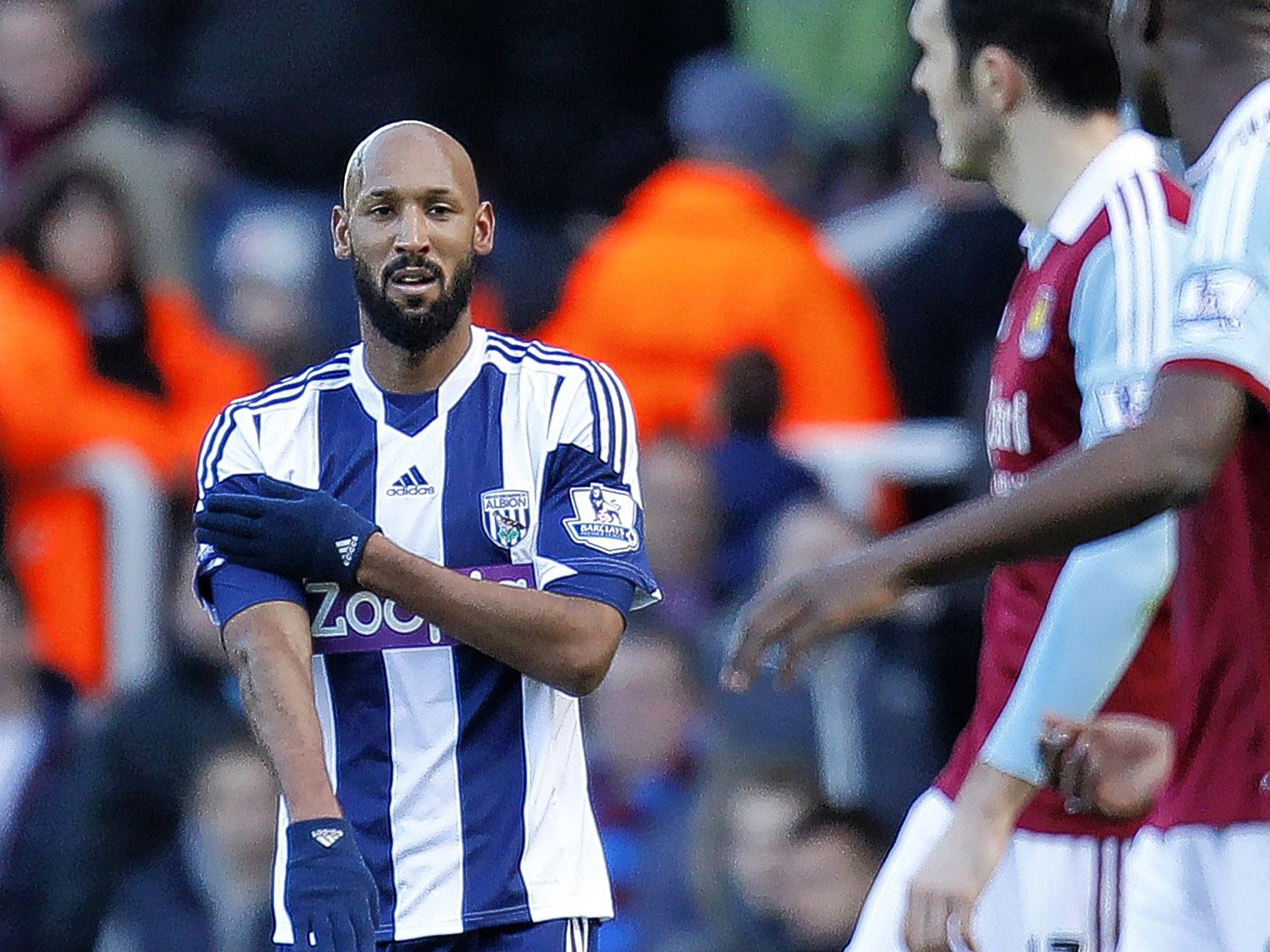Nicolas Anelka gesture: With great footballing prowess comes great responsibility
The hearts of many are easily swayed by the actions of just a few talented athletes

Your support helps us to tell the story
From reproductive rights to climate change to Big Tech, The Independent is on the ground when the story is developing. Whether it's investigating the financials of Elon Musk's pro-Trump PAC or producing our latest documentary, 'The A Word', which shines a light on the American women fighting for reproductive rights, we know how important it is to parse out the facts from the messaging.
At such a critical moment in US history, we need reporters on the ground. Your donation allows us to keep sending journalists to speak to both sides of the story.
The Independent is trusted by Americans across the entire political spectrum. And unlike many other quality news outlets, we choose not to lock Americans out of our reporting and analysis with paywalls. We believe quality journalism should be available to everyone, paid for by those who can afford it.
Your support makes all the difference.Is there a more powerful political stage than the football pitch? Fernando Maria Castiella, Franco’s Foreign Minister during the fascist’s dictator lengthy regime, certainly thought not. “Real Madrid is the best embassy we ever had,” the Minister once said. It was no exaggeration: Madrid players were treated as de facto diplomats during the 1960s and 70s – often being sent out as government dignitaries to soften the image of Spain as a nationalist, authoritarian, anti-Semitic state. What Franco realised and capitalised on still stands today: the hearts of the many are easily swayed by the actions of just a few talented athletes.
Which leads us to the significance of a gesture made by Nicolas Anelka to celebrate his goal for West Bromwich Albion against West Ham United at the weekend: a foul, unfunny, Hitler salute in reverse. Known as the “quenelle” in its native France, the gesture has taken on a life of its own in the past two years, with video after Youtube video (see below) depicting montages of anti-Semites making the gesture at Jewish heritage sites from the Parisian Synagogue, to Holocaust memorial grounds, to Auschwitz itself.
The French player denies knowledge of the gesture’s connotations and the question now is how best to react. New FA guidelines meant to combat racism suggest that if the FA inquiry into the incident goes against him, Anelka could face at least a five-match ban. But many are calling for that exclusion to be significantly longer. Sports columnist Martin Samuel, who writes a column for the Jewish Chronicle, has suggested anything less than a 16-match ban would be lenient.
He has a point. It is a dull truism that 21st-century footballers are global celebrities with enormous influence, but one that needs to be remembered. The Franco-backed Madrid players of the 60s and 70s may have held some sway on the world stage but it is incomparable to the attention paid to today’s most popular sportsmen. Nicolas Anelka is a man with nearly 900,000 followers on Twitter. Compare that with the 300,000 following Labour leader Ed Miliband and the measly 68,000 following Chancellor of the Exchequer George Osborne.
Footballers have the ability to make a difference – be it good or bad. In 2007, Didier Drogba, an ex-team mate of Anelka’s at Chelsea, was appointed as Goodwill Ambassador for the UN in the Ivory Coast. The year before he was credited with bringing about a ceasefire to the five-year-old civil war raging in his home country. The rebel-held North and government-led South were brought together by an international football match played in Bouaké, the capital of the rebellion. It was Drogba who proposed the match: suggesting that the country should set aside their weapons and come together to celebrate the Ivorians – from both the North and South – who were representing their country against Madagascar (Ivory Coast went on to win 5-0).
That is the unifying potential football has. And as we go into the year that celebrates a centenary since German and English troops made a Christmas Day truce to play a game of football, we should be wary of underestimating sport’s political power today. In contrast, Nicolas Anelka’s gesture was purely divisive – a moment of petulance against that spirit of communion which illuminates the best episodes of football’s history.
As those moments are rightfully celebrated, so this one should be rightfully condemned.
Join our commenting forum
Join thought-provoking conversations, follow other Independent readers and see their replies
Comments